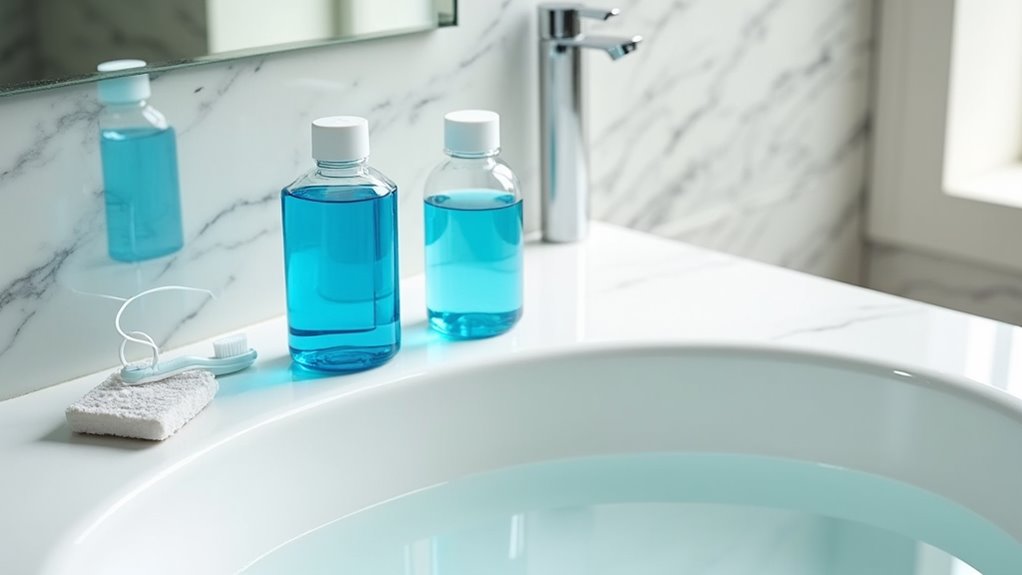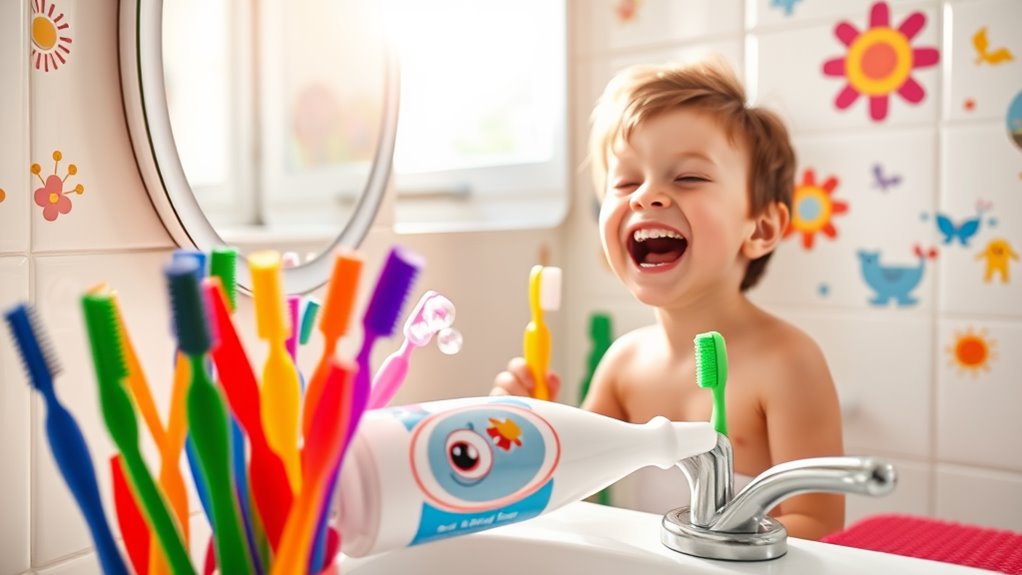Do You Really Need Mouthwash. The Answer Might Surprise You!
You’ve probably got a bottle of mouthwash sitting in your bathroom cabinet right now, but have you ever questioned if you truly need it? While those refreshing rinses might make your mouth feel minty clean, the science behind commercial mouthwash reveals some surprising facts. From disrupting your oral microbiome to potentially masking deeper health issues, that daily swish could be doing more harm than good.
The Truth Behind Mouthwash Marketing Claims
While mouthwash companies promote their products as essential for oral hygiene, many of their marketing claims stretch the truth. You’ll often see advertisements promising complete oral protection, but these claims don’t align with scientific evidence.
The reality is that mouthwash serves as a supplement, not a replacement for brushing and flossing.
One of the biggest mouthwash myths is that it can effectively eliminate bad breath long-term. In fact, most rinses only mask odors temporarily without addressing the underlying causes.
Similarly, claims about killing “99.9% of germs” can be misleading, as not all bacteria in your mouth are harmful – some are actually beneficial for oral health.
You’ll also find marketing suggesting that mouthwash prevents cavities and gum disease. While certain prescription-strength rinses can help, standard over-the-counter products typically offer minimal protection beyond what you’d get from regular brushing and flossing. Additionally, reading labels carefully is crucial to understanding the potential risks associated with mouthwash ingredients.
When Mouthwash Makes a Real Difference
Although mouthwash isn’t essential for everyone’s daily routine, it can provide meaningful benefits in specific situations. If you’re recovering from oral surgery, dealing with gum disease, or experiencing chronic bad breath, therapeutic mouthwash becomes a valuable tool in your dental care arsenal.
| Condition | Mouthwash Type | Impact |
|---|---|---|
| Post-Surgery | Chlorhexidine | Prevents infection, speeds healing |
| Periodontal Disease | Antimicrobial | Reduces bacteria, fights inflammation |
| Chronic Halitosis | Zinc-based | Neutralizes sulfur compounds |
| Dry Mouth | Alcohol-free | Restores moisture, provides relief |
You’ll find mouthwash particularly beneficial if you’re wearing braces, have fixed bridges, or struggle reaching certain areas while brushing. It’s also a game-changer during illness when regular oral care becomes challenging. The key is selecting the right formula for your specific need rather than using a generic rinse without purpose. Additionally, be mindful that over-reliance on mouthwash can disrupt the natural bacterial balance in your mouth, potentially leading to fresh breath issues.
Natural Alternatives for Fresh Breath and Oral Health
For those seeking natural alternatives to commercial mouthwash, several time-tested solutions can effectively promote oral health and fresh breath.
You can create a simple salt-water rinse by dissolving half a teaspoon of sea salt in warm water, which helps reduce bacteria and soothes irritated gums.
Oil pulling with coconut or sesame oil for 15-20 minutes can draw out toxins and combat harmful microorganisms.
Green tea makes an excellent mouth rinse due to its antimicrobial properties and natural compounds that neutralize sulfur-producing bacteria.
You’ll also find that chewing fresh herbs like parsley, mint, or cilantro can provide instant breath freshening through their natural essential oils.
Another powerful option is a diluted solution of apple cider vinegar, which helps maintain optimal pH levels in your mouth.
For added protection, you can create an herbal infusion using sage, thyme, or oregano – all known for their antimicrobial properties. Additionally, incorporating a balanced diet rich in fruits and vegetables can further enhance your oral hygiene and combat bad breath.




